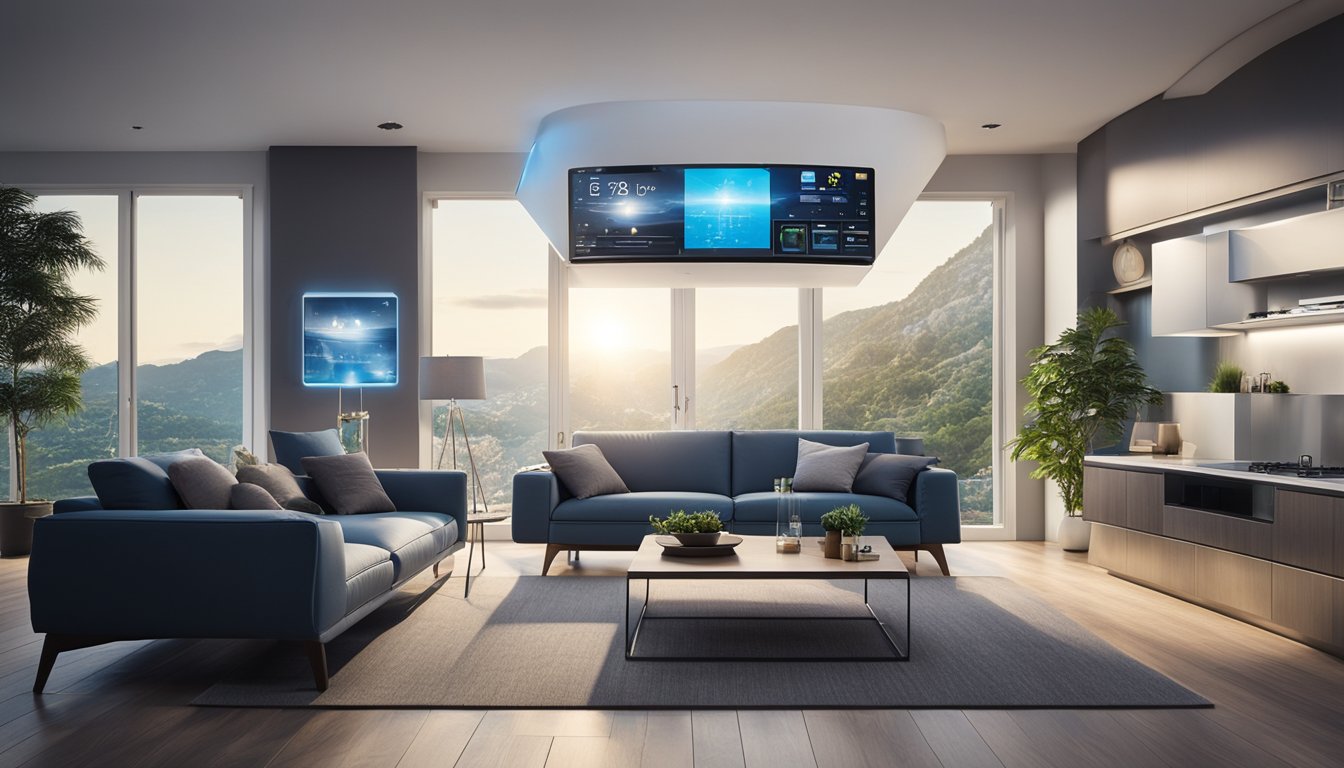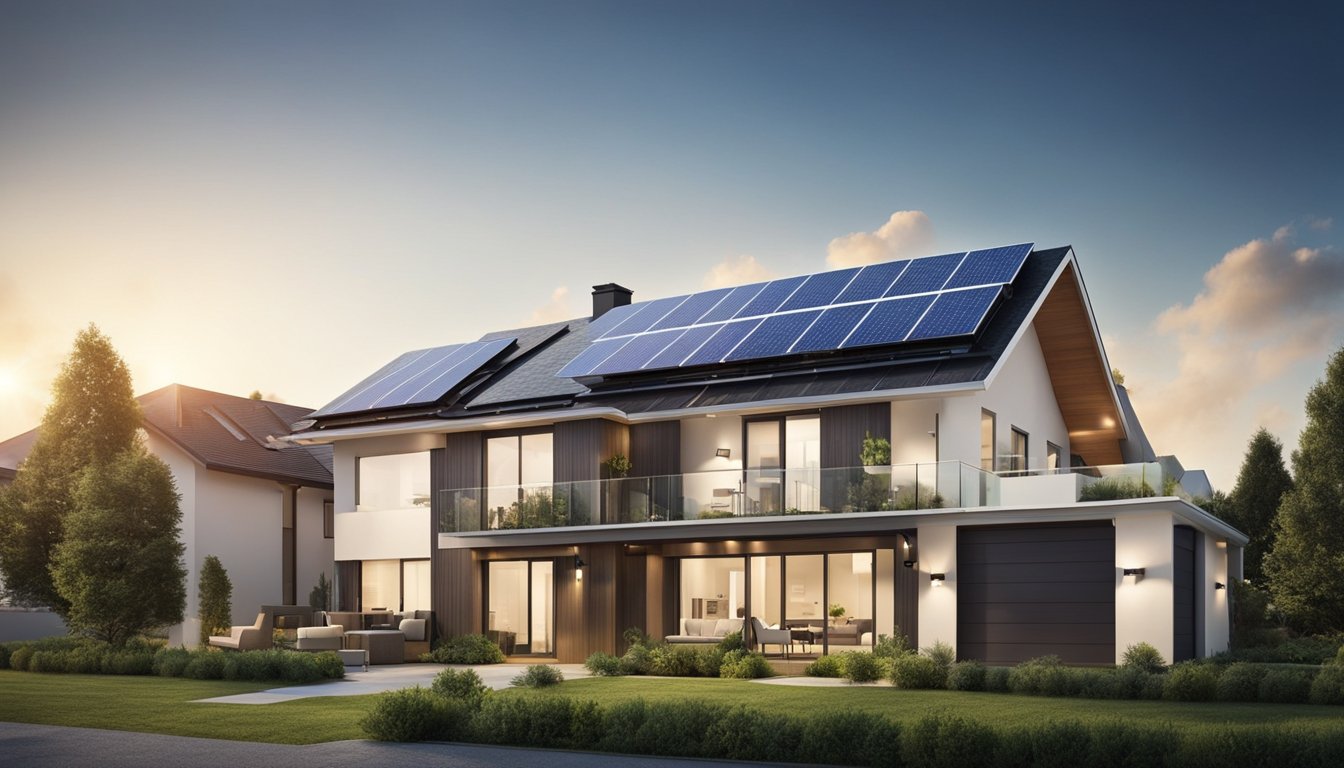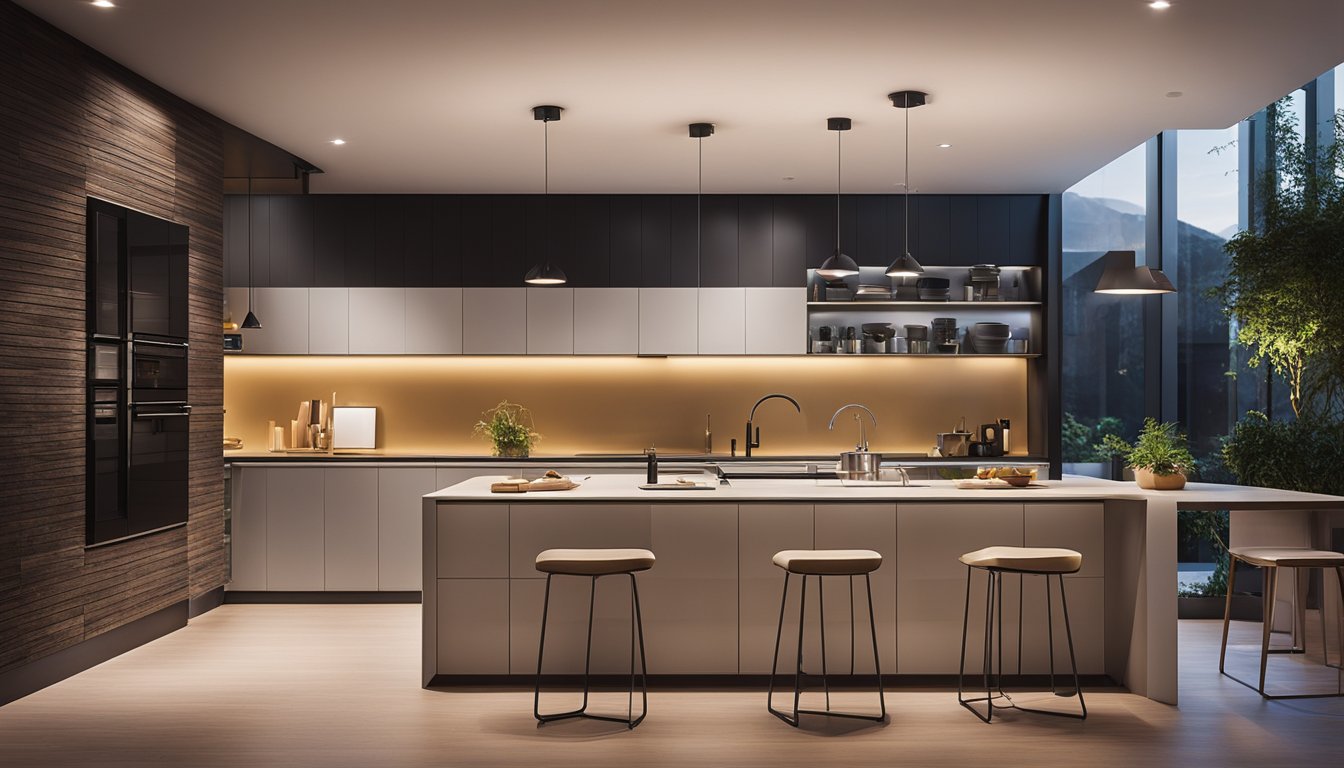Late updated: 02 Jan 2025 12:01
Written by: Daniel Harper
Maximise Home Energy Efficiency With Smart Technology: A Guide to Sustainable Living
In today's world, maximising home energy efficiency is more important than ever. With the increasing integration of smart technology into our households, it's possible to achieve substantial energy savings while enhancing our living environments. Smart home devices empower us to significantly reduce energy consumption by optimising usage and increasing overall efficiency. From intelligent thermostats to advanced energy monitoring systems, smart technology offers convenient and sustainable solutions for home efficiency.

The allure of smart home systems goes beyond simple convenience; they provide tangible benefits for our everyday lives. By leveraging devices that can automatically adjust to our preferences and energy needs, we create a more comfortable and cost-effective home environment. Renewable energy sources like solar panels can further complement these devices, allowing us to store excess energy and adapt to varying conditions.
Key Takeaways
- Smart technology offers substantial energy savings.
- Intelligent devices enhance home efficiency.
- Integration of renewable energy complements smart systems.
Leveraging Smart Home Technology for Energy Efficiency
Smart home technology provides effective solutions for balancing convenience with energy conservation. We explore various smart devices, from thermostats and lighting to appliances and energy monitoring systems. This technology not only helps manage energy demand but also reduces energy bills and promotes efficient energy use in our homes.
Smart Thermostats: Balancing Comfort and Consumption
Smart thermostats offer precise control over heating and cooling, optimising energy use. By learning our habits and preferences, these devices automatically adjust temperatures, ensuring comfort while reducing unnecessary energy consumption.
Many models allow us to control settings remotely via apps, adding flexibility especially during times of fluctuating energy demand. Additionally, by integrating with other smart home systems, smart thermostats enhance the overall efficiency of our homes.
Smart Lighting Systems and LED Bulbs: Illuminating Savings
Smart lighting systems, coupled with LED bulbs, drastically improve energy efficiency. LEDs consume significantly less power than traditional bulbs and have a longer lifespan. Smart systems allow us to schedule lighting, adjust brightness, and even change colours, tailoring illumination to our current needs.
Motion sensors can further reduce energy usage by ensuring lights are only on when necessary. This combination of smart lighting systems and LED bulbs offers both energy savings and extended convenience.
Smart Appliances and Plugs: Intelligent Energy Use
Smart appliances are designed to maximise convenience while minimising energy consumption. These appliances connect to a network, allowing us to monitor and control them remotely. Functions such as scheduling and energy tracking help manage usage efficiently, reducing energy bills.
Smart plugs transform regular appliances into smart devices by giving us remote control over their use. Smart plugs also track consumption, making users more aware of energy efficient practices.
Home Energy Monitoring Systems: Gaining Insights into Usage
Home energy monitoring systems provide invaluable insights into our energy consumption patterns. By identifying high-energy-use appliances and detecting inefficiencies, these systems empower us to make smarter choices.
Real-time data and detailed reports help in becoming more energy-conscious and planning consumption more effectively. These insights foster a proactive approach to managing energy use, aligning with sustainable practices and reducing overall energy demand.
Smart Home Automation: Synergy for Efficiency
Smart home automation integrates various devices, creating a connected ecosystem that optimises energy efficiency. Through automation, our homes can automatically adjust settings based on real-time conditions such as weather or occupancy.
For instance, smart irrigation systems manage watering schedules according to weather data, saving water and energy. The synergy between connected devices ensures that energy is used judiciously, enhancing both convenience and conservation.
Innovative Strategies for Optimising Energy Management

Implementing smart technology can significantly boost home energy efficiency by focusing on key strategies. Utilising renewable energy, adopting AI-driven analytics, leveraging IoT networks, and deploying comprehensive energy management systems are pivotal to enhancing energy management.
Utilising Renewable Energy Sources: Harnessing Natural Power
Investing in renewable energy sources is a vital step in optimising energy management. Solar panels top the list, converting sunlight into electricity and substantially lowering grid dependency. This approach not only yields cost savings but also promotes sustainability.
Smart home systems can automatically adjust energy loads by storing excess solar energy in batteries for later use. By closely monitoring energy generation, users can refine consumption habits, aligning usage with peak production times for maximum efficiency.
Machine Learning and AI: Predictive Analytics for Efficiency
Machine learning and AI revolutionise how we approach energy efficiency. By analysing patterns from energy monitoring systems, these technologies offer energy-saving recommendations. Algorithms predict future energy loads by studying user behaviours and appliance usage, helping us avoid peak costs.
This predictive approach is utilised in smart home energy management systems to enhance operational efficiency. The system might suggest using appliances like smart refrigerators during low-demand periods or adjusting temperatures when no one is home, thus optimising consumption and cutting unnecessary expenditure.
The Internet of Things (IoT): A Network of Savings
The Internet of Things (IoT) creates a cohesive network where devices interact to maximise energy savings. Smart home automation manages everyday devices such as smart shades, lights, and HVAC systems, optimising their operation. Data from these devices is analysed to better understand and manage energy usage patterns.
Energy management systems play a crucial role in this network by integrating with IoT devices to offer real-time insights and adjustments. The ability to remotely control home devices boosts both convenience and energy conservation, leading to an efficient home ecosystem.
Energy Management Systems: Comprehensive Control
The heart of smart energy optimisation lies in energy management systems (EMS). These systems consolidate household energy usage, creating a centralised platform for monitoring and controlling various energy loads.
By offering a detailed overview, including from systems like Energy Star appliances, EMS enables users to make informed decisions, enhancing both comfort and cost-effectiveness. Many EMS are now equipped with AI capabilities that learn and adapt to user routines, continuously refining their approach for a tailored energy-saving experience.
Frequently Asked Questions

In our exploration of home energy efficiency through smart technology, several common inquiries arise. These questions focus on the specific ways technology can reduce energy consumption and the benefits of smart devices within residential settings.
How can smart technology be used to reduce domestic energy consumption?
Smart technology offers precise control over energy use in homes, allowing us to optimise settings according to usage patterns. By automating tasks and adjusting devices based on real-time data, we can effectively decrease unnecessary energy consumption and enhance efficiency.
What are the leading smart home devices for enhancing energy savings?
Devices like smart thermostats, energy-efficient lighting systems, and smart plugs are at the forefront of energy-efficient technology. Each of these tools plays a crucial role in monitoring and reducing energy use, helping us to lower utility bills and reduce our carbon footprint.
In what ways do smart thermostats contribute to home energy efficiency?
Smart thermostats are game-changers in managing home climate control. They learn our habits and preferences to optimise heating and cooling schedules. This adaptability reduces energy waste and ensures comfort, making them a valuable asset for any energy-conscious household.
Can you list the benefits of integrating smart lighting to improve energy use in homes?
Smart lighting systems offer adjustable brightness and schedules, which help us lower electricity consumption. They automatically adjust to occupancy, reducing waste by turning off when not needed. Additionally, the use of energy-efficient LED bulbs further enhances savings.
What role do smart appliances play in achieving energy efficiency in residential settings?
Smart appliances provide real-time feedback on energy use, allowing us to identify and minimise excessive consumption. They can be scheduled to operate during off-peak times, reducing strain on the power grid and lowering energy costs. This makes them invaluable for energy-conscious households.
How does home automation impact overall energy management and savings?
Home automation systems integrate various smart devices, providing us with a cohesive energy management strategy. By synchronising device operations and adapting to our routines, these systems ensure optimal energy distribution and maximise savings, contributing significantly to home energy efficiency goals.
